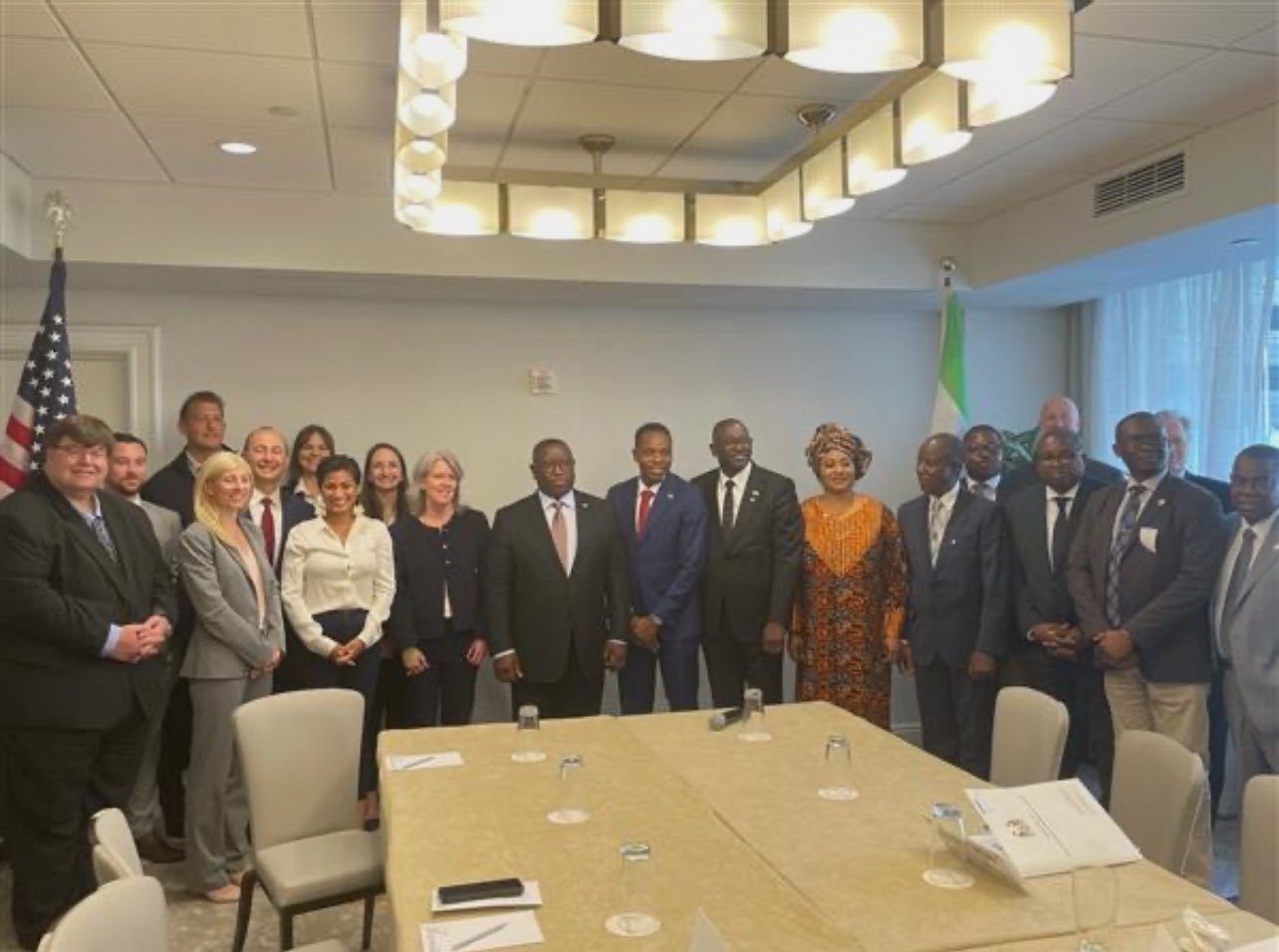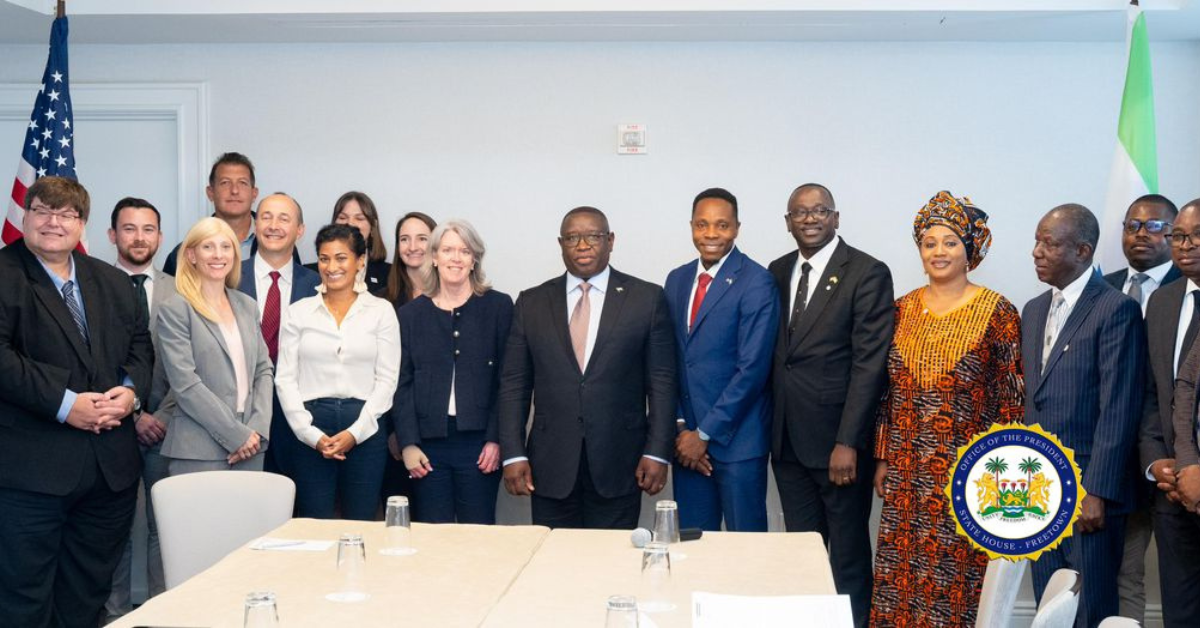Sierra Leone’s President, Dr. Julius Maada Bio, engaged with key U.S. trade and investment agencies during a government roundtable aimed at enhancing economic cooperation between the two countries.
The meeting, organized by the U.S. Government, provided a platform for Sierra Leone to promote its economic reform agenda and attract private-sector investment.
In his opening remarks, President Bio thanked the U.S. Government for hosting the event and reaffirmed Sierra Leone’s commitment to strengthening trade and investment ties with the United States. He emphasized the importance of economic collaboration in driving inclusive growth and prosperity in his country.
Bio outlined his government’s priorities, focusing on governance reforms, infrastructure development, and human capital investment. He noted significant strides in combating corruption and improving transparency, positioning Sierra Leone as a favorable destination for global investors. Recent investments in energy, roads, and ports have been key to transforming Sierra Leone into a potential trade hub in the region, he said.
Addressing the country’s energy challenges, the president highlighted the need for expanded energy access and capacity. He praised the U.S. Millennium Challenge Corporation (MCC) Compact for its role in strengthening the country’s energy infrastructure and supporting key sector reforms.
Agriculture also featured prominently in the discussions. President Bio spotlighted Sierra Leone’s Feed Salone Programme, which promotes private-sector-driven agriculture in value chains like rice, cocoa, and coffee. He called for U.S. investment in agricultural research, mechanization, and infrastructure to boost the sector’s productivity and export potential under initiatives such as the African Growth and Opportunity Act (AGOA).
Concluding his remarks, Bio reassured U.S. investors of Sierra Leone’s commitment to creating a transparent and stable investment environment, stressing the importance of deeper cooperation between the two nations. The roundtable is seen as a significant step towards fostering private-sector partnerships for sustainable economic development in Sierra Leone.












